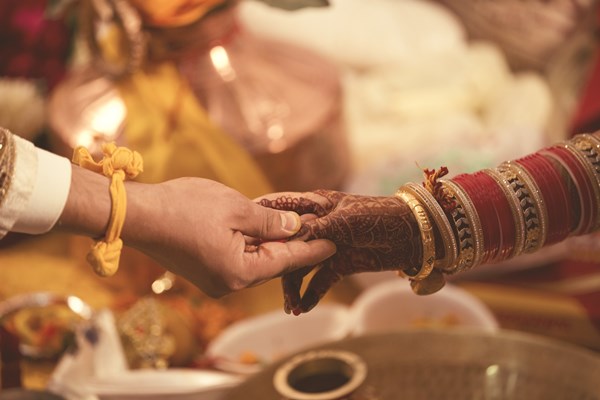As life becomes more global in scope and many people reject the traditional beliefs of pairing up with others of the same race, creed and religion, it is but obvious that religion is not the first thing you consider while dating someone.
In the past few years, there has been a tremendous increase in marriages happening between two different religions. While the hope is that interfaith couples share common ground in many areas, a difference in religious beliefs can present a problem down the line. Initially love covers up all, but later you need to compromise and make adjustments with your in-laws and other families member.
And the main issue rises up when you have kids, which religious belief they should follow etc
“Religion isn’t just church on Sunday, but also ideas about raising children, how to spend time and money, friendships, professional networks — it can even influence where to live. The disagreements between husband and wife start to add up.”
But these differences should not be the reason for your relationship to fall apart or breaks.
Offering you some tips to ensure a difference in religious beliefs doesn’t get in the way of a healthy relationship.

The most important asset in an interfaith relationship is respect. You may agree to disagree — but in any relationship, you can’t disrespect and have things work. Acknowledge your religious differences and have open conversations throughout your relationship, but always respect each others’ religions.
The same goes if one member of the couple is religious and the other isn’t. If you can’t respect someone’s faith that will inevitably spell trouble for the relationship, especially since deeply spiritual people attach a part of their identity to their religion.
Participate in each other’s religions
To build a strong union, you need to actively participate in one another’s lives, especially when traditions are involved. If you opt-out of those fundamental practices, it won’t just alienate your partner — it could also create a divide between you and your children if they practice those same traditions.
You can attend religious services as a respectful observer — even if you’re not a believer. This is a big part of getting to know each other and to build on the relationship by supporting and participating in differences.
Similarly, if one member of the couple isn’t religious, it’s important to participate in activities or non-religious traditions that are important to them. You can’t expect your atheist partner to respect your religion if you can’t respect or honour their decision not to practice a religion; that’s a breeding ground for resentment.
If you want your partner to go to church or temple to celebrate a holiday, join them in their own tradition around the holiday.
Discuss all of this ahead of time
All the tolerance and respect in the world won’t amount to much if you find that you’ve partnered with a person who has taken a hard-line against religion (or only for their own). Religious incompatibility can be a deal-breaker for a lot of people. It’s the kind of topic that needs to be discussed early on.
Try to see if you can make things work, but if you can’t, don’t force it. Recognize the incompatibility and consciously decide to stay in spite of it, or to move on because of it.
